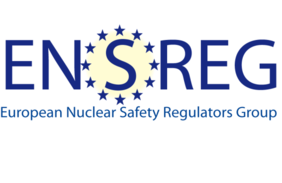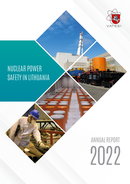During the meeting in Brussel on the 2nd of July European Nuclear Safety Regulators Group (ENSREG) has endorsed the EU peer review report of the Belarus stress tests.
The EU peer review report of the Belarus stress tests has shown many deficiencies of the Belarus NPP design. Peer Review Team have presented important recommendations on how to eliminate these deficiencies.
Key deficiencies of the Belarus NPP design and proposed recommendations:
Comprehensive seismic assessment not performed
Before preparation of Belarus NPP design comprehensive seismic assessment, which is needed to determine appropriate NPP design criteria, was not performed. The most important recommendations presented in the report:
- to reconsider seismic safety assessment of Belarus NPP and perform necessary design changes and modifications to the installed equipment taking into account the results of probabilistic seismic hazard assessment;
- to perform an assessment of seismic margin (a resistance, that exceeds seismic design basis) for all equipment of the Belarus NPP that must perform its functions during accidents foreseen in the design – both design basis accidents and severe accidents. The seismic margin that was determined in the design of the Belarus NPP does not meet the safety requirements for new reactors;
- to assess the earthquake that took place 25 km from the site of the Belarus NPP in 1908 and in accordance to the results of this assessment review the seismic catalogue (part of the technical project) and take all necessary actions to assure the seismic safety of the Belarus NPP.
Revealed Belarus NPP design deficiencies related with loss of safety functions
During preparation of the Belarus NPP design, it was not assured that the design meets best international practice. The most important recommendations presented in the report:
- to ensure a reliable power supply to equipment used in severe accident prevention before nuclear fuel damage or without significant fuel degradation. It is recommended to install a permanent alternative emergency power supply to this equipment that would be effective during a total loss of power, including loss of power supply from stationary emergency diesel generators (station blackout);
- to foresee additional power supply to the special pump that is used to ensure reactor core, containment and spent nuclear fuel pools cooling during severe accident conditions and station blackout. In addition, install an additional special pump to increase the reliability of cooling function;
- to foresee measures for a reliable nuclear fuel cooling that is in the reactor core during refueling when the reactor pressure vessel head is open during a station blackout;
- to perform tests providing the efficiency and effectiveness of safety important passive systems (not require additional power sources) foreseen in the Belarus NPP design.
Revealed deficiencies of severe accident (when nuclear fuel is damage) management
During preparation of the Belarus NPP design, it was not ensured that severe accident management meets best international practice. The most important recommendations presented in the report:
- while preparing the documents that justify the operational safety of Belarus NPP it has to be shown that severe accidents in the spent fuel pools that could lead to major radiological consequences are practically eliminated;
- to increase the reliability of the reactor coolant system depressurization during severe accident conditions;
- to analyze the need of the emergency ventilation system between the inner and outer containments during severe accident conditions and during station blackout and to modify this system if needed;
- to improve the resistance of the control rooms (main control room and emergency control room) to conditions unfavorable conditions for work that can arise during severe accident conditions;
- to prepare a detailed and clear plan that would ascertain that all necessary accident management procedures would be prepared and verified and that the NPP staff were trained to work following them before loading the nuclear fuel into the reactor.
With accordance to the given recommendations, report suggests that Belarus should prepare and implement National Action Plan. This Plan should contain all safety improvement measures given in the national Belarus NPP stress test report as well as European stress test results. European Union (EU) experts should participate in the review of the implementation of the respective measures of the National Action Plan.
VATESI head Michail Demčenko says that during the Belarus NPP stress tests and their international peer review the amount and safety significance of the recommendations has revealed major deficiencies of the Belarus NPP design. Besides the issues that were identified during the Belarus NPP stress tests there are other important safety issues that are out of the scope of the stress test tasks. Taking into consideration the best European and other international practice, Lithuania raises other important to Belarus NPP design safety issues. These issues are the site selection only 40 km from the capital Vilnius of one of European Union countries and the safety assessment of that site, environmental impact assessment, consideration of modern international safety requirements for new NPPs, including heavy airplane crash impact assessment, quality assurance and safety culture deficiencies during the construction and operation. Due to these reasons, the units of Belarus NPP must not be put into operation before all of the recommendations that were established during the Belarus NPP stress tests and during their international peer review would be properly implemented. All of the questions that were raised concerning the safety of the Belarus NPP must be answered as well.
Lithuanian experts have actively participated in the stress tests of the nuclear power plant that is being built in Belarus that were organized by the European Commission and ENSREG. Lithuanian experts have presented 160 questions, actively participated work group meetings, and visited Belarus NPP. The EU and other countries in total have presented 464 questions to the Belarussian stress test report.
More information about EU peer review report of the Belarus stress tests:
www.ensreg.eu/EU-Stress-Tests/Country-Specific-Reports/EU-Neighbouring-Countries/Belarus








